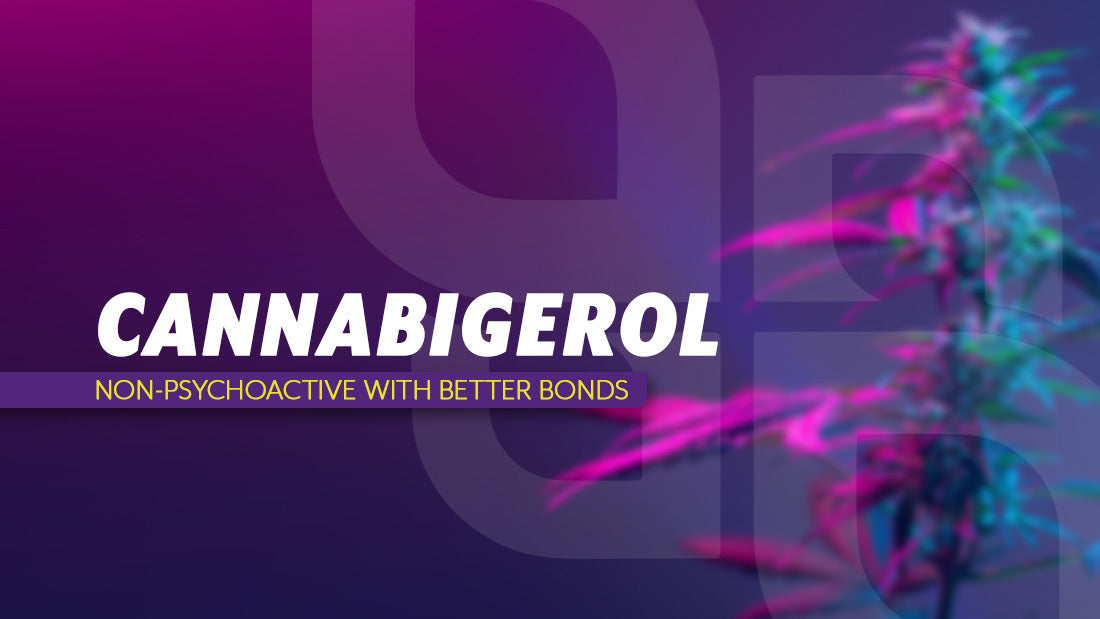
CBG; The Mother of all Cannabinoids
Share
Cannabigerol or “CBG” is another cannabinoid to consider when choosing your cannabis-based products, so we’re going to take a quick dive into the basics of CBG and why you should be looking for other minor cannabinoids.
CBG is a minor cannabinoid found in almost all cannabis plants and is often referred to as the mother of all cannabinoids. When young cannabis plants begin maturing and start to bud, enzymes and compounds in the plant produce CBGA (an “early-phase” or “precursor” cannabinoid) the starting point for all other cannabinoids. Over the plant’s growth cycle and through the absorption of UV light over time, CBG breaks down and converts into THCA and CBDA, the precursors to THC and CBD. CBG is non-psychoactive and therefore does not produce the high associated with THC despite their connection. It also binds to both CB1 and CB2 receptors making full use of your endocannabinoid system (“ECS”) and can be used to counteract the effects of other cannabinoids.

But why do people consume CBG? Well, while research is still being conducted on this compound, so far it is indicated that it can provide numerous benefits and some of those researched so far include:
- Reduction of intraocular pressure and working as a vasodilator neuroprotectant, making its use promising for those with eye conditions (such as treating and managing symptoms of glaucoma),
- Anti-inflammatory properties that could be used to treat Inflammatory bowel diseases (“IBD”),
- It’s neuroprotectant nature helping to protect the nerve cells in your brain from damage and improve motor skills and movement.
- Agonist to alpha-2 receptors, by inhibiting them CBG may be able to address symptoms of attention-deficit/hyperactivity disorder (“ADHD”).
As you can see Cannabigerol is another compound found in the cannabis plant that has the potential to provide an increase in the quality of life to many people suffering from a range of conditions.
Whilst at a glance, it may appear that CBD and CBG are similar in that they are both non-intoxicating and exhibit similar anti-inflammatory properties, there are key differences in how your body processes these two cannabinoids. CBG binds directly with your CB1 and CB2 receptors, compared to CBD which has little binding affinity for either receptor. The CB1/2 receptors are the same ones that bind with THC, meaning it can potentially address issues relating to the nervous system such as, glaucoma, migraines, muscle soreness, and inducing appetite.
